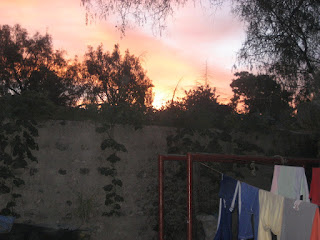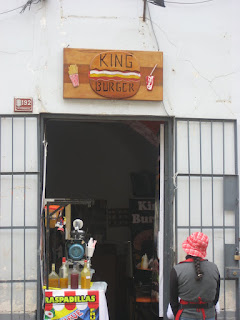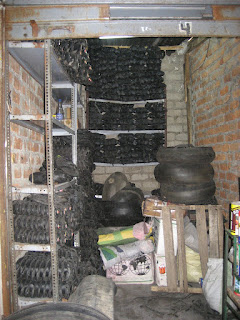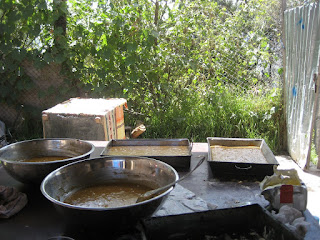This amputated return definitely is not representative of the three amazing, challenging and varied months I spent in South America. From studying verbs in Quito to hiking up Machu Picchu, I've fallen pretty brutally in love with the continent. Although I only discovered Ecuador, Peru and Bolivia, I've never felt so entranced by a language, an incredible mix of cultures and devastatingly beautiful scenery. I know I'll be back. In a month, I'll begin working in Argentina, which will be a wholly different experience, but one I am already awaiting (and crossing my fingers that the rugged football team triumphs in the World Cup).
After so much time on the road, I feel both the urge to and the impossibility of summing up my trip. As with most travelling, I feel my horizons have been vastly opened, as has my self-knowledge. Rarely have I felt so amazed, so challenged and so blessed. Oddly, the best way to describe my trip is through the metaphor of Avatar. Yes, the Hollywood blockbuster. Here is why:
1. The first time I saw Avatar, it was with my lovely host mother in Quito, Ecuador. She was aghast that I hadn't seen it yet, so invited me to a fancy multiplex to indulge in the 3D adventure, complete with popcorn and coke. It was comfortable, familial and fun. This basically sums up my leisurely stay in the Ecuadorian capital, where I had a daily routine that swayed between my adorable host family, language school and friends.
2. But my second viewing of the film was quite different. During the 10 hour bus trip from Trujillo to Lima, the bus assistant switched on the tiny TV screen to show us Avatar. I was sitting with a Peruvian friend I had met that same day, and we watched the German-subtitled film as we cruised through the Peruvian desert. This showing is symbolic of my month spent criss-crossing Peru: always in movement, often with a foreign tint (german subtitles= hordes of tourists) and a bumpy yet enjoyable ride.
3. I'm not sure my third witnessing of Avatar even counts as such. In the volunteer house in Ayacucho, one of my Peruvian roommate was film-obsessed. So one night, as I lay huddled in my sleeping bag, coughing and feverish, he decided to watch the film. I attempted to watch too, but my ears were ringing and I ended up fast asleep. Sadly, this is representative of my last two weeks in Peru-- I was basically too sick to enjoy anything.
A few of my favourite pictures from the trip:

Mountains hiding Machu Picchu, Peru, taken on Day 3 of my trek. Called 'apus' in Quechua, which means 'sacred mountains', their size, intense green and stoic silence indeed appeared sacred. I was constantly stunned (probably the most overused word on this blog) by the natural beauty of the Andean region.

Nuns watching a religious procession in Cuenca, Ecuador. As I was present during Semana Santa, the holy week leading up to Easter, I witnessed many, many scenes of worship. It was humbling to see the strength of the devotion of nearly an entire population. Also fascinating was to see how the Catholic faith is intertwined with the traditional Inka one, in a mixed form called Andino.

One of my favourite encounters during my travels. This typist in Trujillo, Peru, works every day in front of the court house, writing up letters for people in need. He has been doing so for 18 years. His stare was almost as intense as the speed of his fingers on the typer.

What can I say, kids are adorable. This little boy was being wheeled around the market in Otavalo, Ecuador by his mother.

A quiet street in Copacabana, Bolivia, a charming town basking on the side of the incomparable Lago Titicaca.
Thank you for taking the time to read this blog-- and indeed this novel-sized post. I deeply appreciated it. Un beso, Alejandra.














































